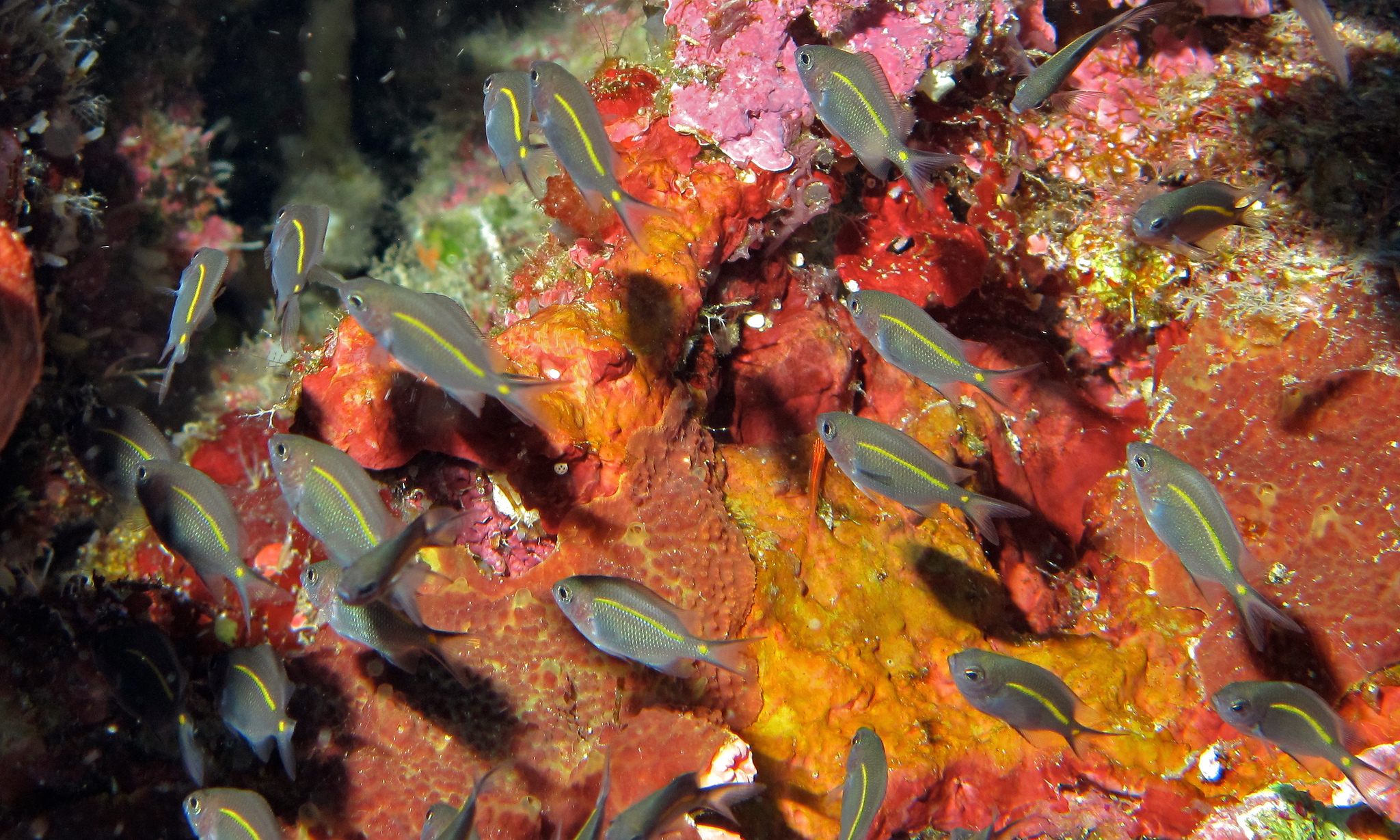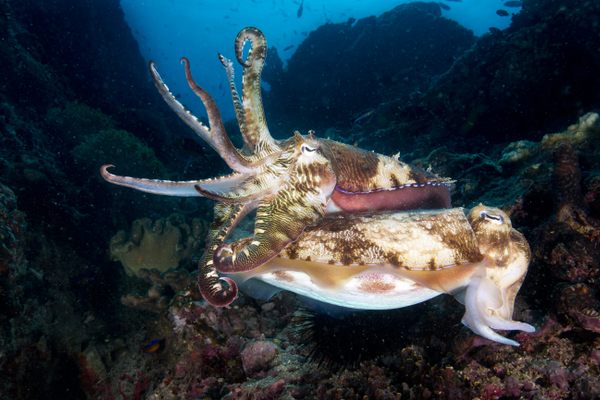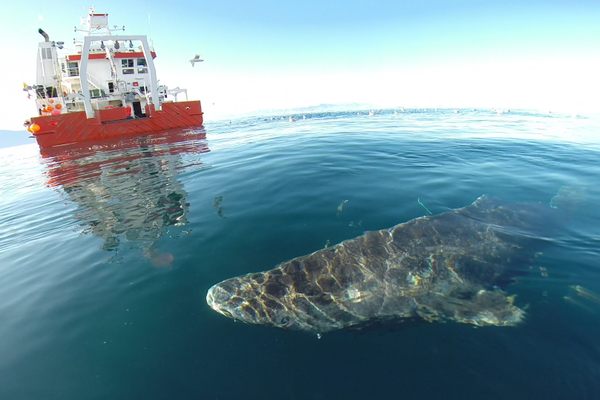Motorboat Noise Turns Fish Into Deadbeat Dads
Shhhhhhh!

We’ve found a million ways to pollute the oceans, and it’s not just plastic and oil. Noise is a major problem—sonar hurts whales, for example. According to a new report published in Proceedings of the Royal Society B, the sound of motorboats is enough to turn some fish into delinquent parents who leave their offspring vulnerable to predators.
Male spiny chromis damselfish spend more time than females watching over their young. Researchers from the United Kingdom and Australia studied 38 spiny chromis nests in the Great Barrier Reef and tracked the behavior of the fish dads. They used speakers to play sounds of motorboats at half the nests, while the other nests only experienced the ambient ocean sounds.
The boat noise was not beneficial to the baby fish. In fact, six out of the 19 nests subjected to boat recordings were completely empty at the end of the experiment. “It is likely the parents were either stressed or distracted by the noise, giving an advantage to the predators,” said Sophie Nedelec, a biologist at the University of Exeter and the lead author of the report, in a press release. Fish fathers exposed to the noise spent more time chasing away other fish, even ones that weren’t a threat, which left their nests wide open to predators.
Considering the thousands of motorboats that cruise the oceans, especially in delicate areas such as the Great Barrier Reef, noise pollution may be an even bigger problem than anyone has realized. Scientists, however, are optimistic the impact can be minimized over time through quiet zones or changing engine and propeller design. Hopefully turning the volume down will lead to less-stressed reef parents.



























Follow us on Twitter to get the latest on the world's hidden wonders.
Like us on Facebook to get the latest on the world's hidden wonders.
Follow us on Twitter Like us on Facebook